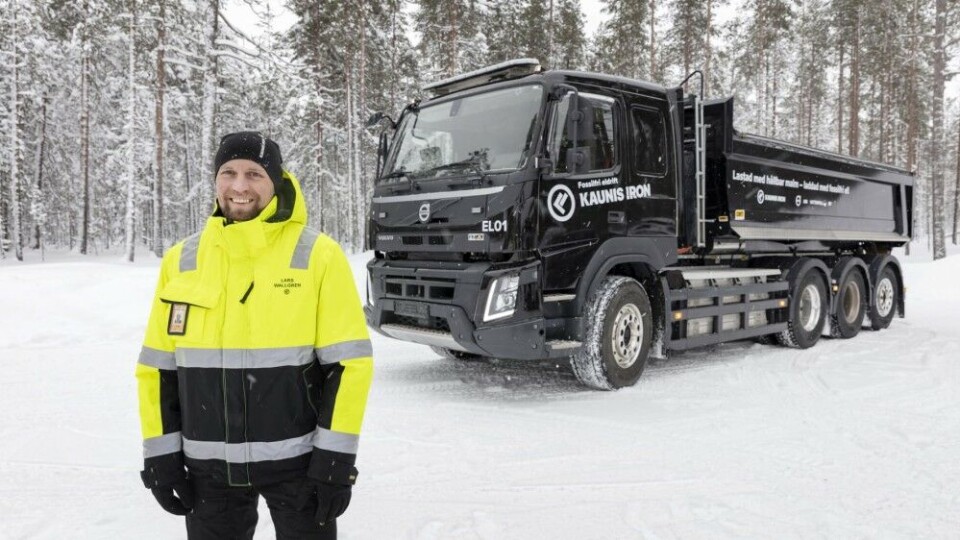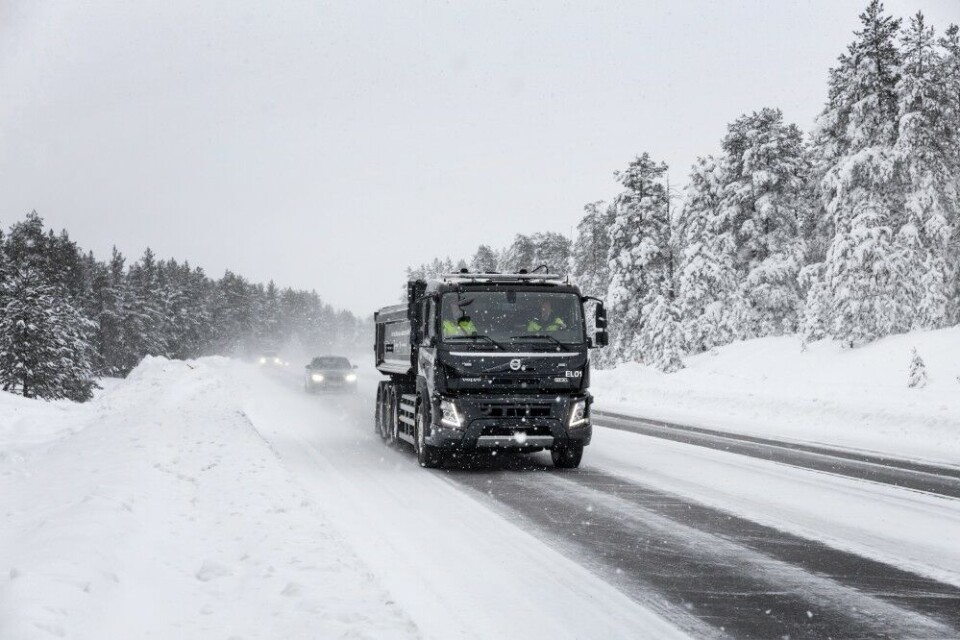
Iron ore miner takes lead in development of all-electric heavy truck for Arctic roads
If you thought a battery-powered heavy truck can’t work at -44°C below zero, think again. A unique pilot project takes place in northern Sweden this winter.
“If the technology works here, it will probably work everywhere,” said Lars Wallgren, logistic manager with Kaunis Iron, a recently re-started iron ore mine outside Pajala, north of the Arctic Circle.
Kaunis Iron has teamed up with Swedish power company Vattenfall, Volvo Trucks, ABB and Wist Last & Bus in a pilot project aimed to prove that battery-power is well suited for long-distance transport of ore, even in extreme cold.
The Kaunis mine is located a stone’s throw from Sweden’s northern border to Finland, but the nearest railway is 150 kilometers away. From the Pitkäjärvi re-loading terminal near Svappavaara, the electrified Iron Ore Line brings the ore by train to the port of Narvik, on Norway’s coast to the North-Atlantic.
The goal of Kaunis Iron is to electrify also the first leg of the route, the transportation by heavy trucks. Five years from now, all trucks on the route will be battery-powered.
“This type of challenge cannot be solved by any single stakeholder. Industrial innovation calls for collaboration between experts. It is therefore pleasing that we have managed to assemble such a strong team to challenge the Arctic climate with electrically powered heavy vehicles,” said Lars Wallgren.
Ebba Bergbom Wallin with Volvo Trucks Sweden is excited about the truck’s driving performances in Arctic environment.
“It will help us assess how battery-electric trucks can be used to increase efficiency and reduce climate impact in extremely cold conditions. The test of the Volvo truck this winter will give real-life experiences aimed to further improve the technology,” she said.
Testing of charging infrastructure is part of the pilot program, with ABB delivering three high-power charges, each of 175 kW with standard CCS outlets.
Equipped with lithium-ion batteries with a capacity of 264 kWh and a 400 kW electric motor, the testing of the 32 tonnes heavy truck will bring knowledge to benefit the entire automotive industry.

Previously, Vattenfall and Kaunis Iron entered partnership to develop solutions for electrification of rock- and passenger transport in the mine itself and at other parts of the company’s operations.
“The Swedish mining industry is facing major changes to reduce dependence on fossil fuels and develop climate-efficient and responsible mining operations. This is a prerequisite for the transition to a sustainable society, and contributing to local development with a minimal climate impact. Kaunis Iron wants to take active responsibility for this development, and that is why this collaboration with Vattenfall is very important,” said Klas Dagertun, CEO, Kaunis Iron.
Others in northern Sweden that are implementing zero-emission heavy vehicles running on battery-power include iron ore miner LKAB, Boliden’s Aitik copper mine outside Gällivare and city busses in both Luleå and Umeå.

















